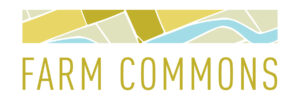“Cultivating Your Legally Resilient Farm” workshop by Rachel Armstrong with Farm Commons

DECEMBER 6, 2019 from 9:00 am – 5:30 pm
About the Workshop
Empower your community through Cultivating Your Legally Resilient Farm Workshop, a customized workshop that gives farmers the resources to address the legal basics of land use and leasing, farm financing, farm events, value-added production, business structures, insurance, sales contracts, and food safety (including the new FSMA regulations).
Do you know how to write an effective, comprehensive lease? Are you wondering whether you should form an LLC, S corporation, or neither? What about hosting interns or working with volunteers; is that legal? How should a farm manage the risk that guests may get injured when they visit the operation? Farm law affects everyone, especially the most innovative, direct-to-consumer farmers. Answers aren’t always easy to come by- but that’s why Farm Commons exists.
This isn’t your typical boring, export-focused legal education. Farm Commons believes in a core tenet of social justice: nothing for us without us. Every workshop is adapted to the needs of individual farming communities, beginning with participatory agenda creation. Putting farmers upfront and center, Farm Commons trains 2 local producers to be our workshop Co-Presenters. The farmer presents the practical on-farm aspects of the rules while Farm Commons emphasizes legal mechanics.
Farm Commons hosts fun, interactive workshops that get farmers talking and taking action to reduce legal risk. Farmers walk away with an individualized to-do list that reflects their needs and priorities. Farm Commons doesn’t stop there, either! Farm Commons uses a cohort model to follow up after the workshop, making sure producers are connected to the resources they need to implement their action plans.
The format is successful. Nearly 90% of farmers plan to make changes to their operation- changes that reduce risk and leverage legal opportunity- as a result of this workshop.
Here’s what farmers have to say about Farm Commons’ workshops:
“Plain-spoken, good real-world examples. Very comprehensive.”
“It was such an incredible gift to get so much valuable information even though I’ve only just begun learning more about farming.”
“Way more approachable than expected! I feel like I can actually do this stuff the right way.”
What do producers learn at Cultivating Your Legally Resilient Farm?
The Farm Commons curriculum is designed so that each workshop attendee assesses their own individual risks, opportunities, and action steps regarding the following:
Business Structures:
-
- When an LLC or corporation is the right choice for a farm operation.
- How to manage an LLC or corporation so its legal benefits are preserved.
- How to form an LLC or corporation
- How to draft the appropriate paperwork to protect the business partners involved.
Land Purchasing and Leasing:
-
- The legal importance of a written lease
- What a farmland lease should contain and the process of writing one.
- How to create the paperwork for informal purchase arrangements such as seller-financing and land contracts.
- Basic farm financing legal considerations including gifts and crowdfunding.
Insurance and Liability:
-
- When and how a farm becomes liable for an injury connected to the farm’s operations including food safety, farm events, farm food service, and value-added production
- The best options for protecting the farm legally when injuries inevitably occur
- When and how crop and livestock insurance is available to cover losses
Food Safety:
-
- How every farm can be responsible for a food safety incident, regardless of regulatory compliance.
- When and how farms must comply with the Food Safety Modernization Act
- How to manage the risk of food safety incidences with insurance.
Employees, Interns, and Volunteers:
-
- The basics of the minimum wage, overtime, payroll tax, workers’ compensation, and wages in the form of food and lodging.
- Whether and how farms may utilize unpaid or underpaid interns or apprentices.
- The legal risks of utilizing volunteers in a for-profit business
Agritourism and Adding Value:
-
- How zoning codes can limit or prohibit these activities and what do next if the farm’s desired activities are constrained by regulations.
- Legal considerations when doing on-farm events relative to liability, employment law, business structures, taxes, and land use regulation.
- The farm’s obligations in terms of access to persons with disabilities.
Sign Up for the Workshop When you Register for the Annual MOA Conference, December 5 – 7, 2019 in Bozeman, MT.
MOA Conference Registration Page